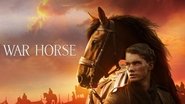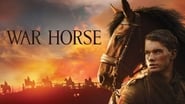Asif Khan (asifahsankhan)
If The Adventures of Tintin harkens back to Spielberg's Raiders for inspiration, one could look for precedents for War Horse in E.T. and Saving Private Ryan. It would be truer, though, to say that in War Horse Spielberg harkens back to an earlier cinematic age, creating something more like a Golden Age Cinema epic than any film I've seen in years, the one other notable example being Baz Luhrmann's Australia.Like Australia, War Horse combines the rugged, sprawling beauty of a classic Western with epic wartime saga. Based on the 1982 children's novel by British author Michael Morpurgo as well as the award-winning 2007 stage play, War Horse is a World War I-era tale about an English farm lad named Albert (Jeremy Irvine) who forms a powerful bond with a Thoroughbred horse named Joey that his erratic father Ted (Peter Mullan) impulsively buys at auction.The family can't afford such a fancy animal, and Joey isn't the right sort of animal for farm labor anyway - but Albert's determination and the horse's heart overcome formidable obstacles, and for awhile the future looks brighter. But then Albert's father is obliged to sell Joey to a British officer heading overseas, and Albert, not yet old enough to volunteer, is parted from his beloved beast.The handling of this episode is typical of one of the aspects of War Horse I most appreciate. When an upper-class British officer takes a poor farm boy's beloved horse, convention dictates that the officer be arrogant, cruel, or at least indifferent to the boy's pain. Instead, this officer is an utterly decent and sensitive chap - one who apologizes to the boy, acknowledges that the horse is worth far more than he's able to pay, and gives his word to give the horse back upon his return if he is able to do so.Although it's probably no spoiler to say that the officer's promise doesn't pan out, he does prove his good intentions by going above and beyond the call of duty to keep the boy apprised of Joey's condition. This is typical of the film's humanism, which extends also to Germans, both officers and young boys in uniform.The first World War was a fairly pointless war, but War Horse honors the way that men on all sides shared a common commitment to the same rules of engagement, and a common humanity deeper than their political and military cross purposes. Not that there isn't brutality and horror too - both toward humans and toward animals - though not necessarily too intensely depicted for children who have reached double digits. Still, War Horse doesn't reduce men, or war, to the lowest common denominator.There is a wonderful scene, reminiscent of the 1914 Christmas truce depicted in Joyeux Noel, in which soldiers on opposite sides must come together for a common humanitarian purpose. What is wonderful about the scene is not only why they come together, but how they interact. Even more moving is a later scene in which a supporting character who has almost as much reason to love Joey as Albert makes a supremely difficult sacrifice, one that costs him in a way even more than Albert giving up Joey.Likewise, I appreciate the loyalty mixed with the fury of Joey's mother Rose (Emily Watson) at her weak, drink-prone husband Ted. Though she rightly blames him for bringing the family to the brink of ruin, she simultaneously defends him to their son, putting her husband's weakness in the context of the horrors he faced in the Boer War, and the strength he has shown in not breaking completely. Rose's response to her husband, when he shamefacedly confesses his fear of the day when she will no longer love him, is one of the most beautiful and terrible things I've ever heard: "I may hate you more," she tells him, "but I'll never love you less."For all its gorgeous cinematography and humane themes, War Horse isn't entirely satisfying. The novel told the story from Joey's point of view. A writer can take us inside an animal's head; a live-action film can't do that (except through voiceovers, a risky move). Spielberg doesn't try. Joey is a magnificent, intelligent animal (a little too intelligent at times, as when he comes to the aid of another horse with whom he has bonded), but in the end his liquid gaze is as impenetrable as any animal's. We can feel for him, but he doesn't provide the emotional center that a human protagonist would do.Somehow, though, the sum of the parts are more than the whole. I appreciate the film for its bits and pieces, and for its consummate craft. I appreciate its empathy, its celebration of goodness in all different sorts of people, even in very flawed people. It is a film of a kind we don't see any more, sadly.
OzoFriendly
First off, I will say that I am perfectly happy to spend a couple of hours every once in a while having my emotional buttons pushed, and I'd suggest that no one can do that more reliably than Spielberg. I mention this only because no one should be in any doubt that, settling down to watch War Horse, that is precisely what will happen.I've read a couple of Morpurgo's books - he's very popular with my two girls - so I also know that the story would frame discomforting, even distressing, aspects of humanity in the context of an exciting and engaging story pitched at a young audience. I've no idea how much Sewell's Black Beauty influenced Morpurgo, but War Horse portrays the terrible ordeals animals suffered during WW1 with the same unflinching veracity.Spielberg (with John Williams very much in tow) takes it's audience from the mundane preamble to war in England, through the unspoiled fields of the first shocking skirmishes in France, to the appalling, desperate, deadly struggle between the trenches. There is no jingoism, no great heroism and no judgement. There is, as Kipling lamented, "but to do or die" and while War Horse is occasionally violent, it is neither gratuitously so, nor graphic.Unlike the book, which is told from the perspective of the horse, the movie focuses necessarily on the characters whose lives are touched by the horses and how profoundly they are affected by the war. These stories are poignant vignettes and the acting is generally excellent; I thought Tom Hiddleston and Niels Arestrup were particularly good. As protagonists, the horses of the story are granted a measure of anthropomorphism, and this quality is reassuringly restrained; I really liked how naturally the horses behaved in comprehensibly human ways without succumbing to uncanny-valley CGI.I am saddened that so many reviewers seem incensed that they have been manipulated watching this movie; I thought that was the idea. If and when I sit my girls down to watch War Horse, I certainly hope they are. As long as you can forgive the few minutes of excessive schmaltz Spielberg seems to think his audience demands at the end of his movies, War Horse is a very enjoyable and rewarding button-pusher.
Filipe Neto
The film basically tells the story of a horse that participated in World War I, like thousands of others. Contrary to many people, I think this movie is not just the story of a horse nor is it focused for people who are fond of horses. It spite of that, it uses the story of a particular horse to focus on a subject we rarely think about: the horse's indispensable help to humans. The horse was essential to our society over the centuries, both at peace and at war. He has been man's best friend, much more useful and important than the dog itself, and the film shows this very well, just like the affective bond that can be built between man and animal. I also liked the way the trenches and the war scenario was rebuilt. Everything seemed quite realistic and according to the historical truth, so I was able to ignore any hypothetical inaccuracies in the details. Jeremy Irvine did very well on the main human character, perfectly up to the challenge, as well as most of the supporting cast. It has been nominated for six Oscars and, although it hasn't won any of them, this is already a prize in itself, it's not?







